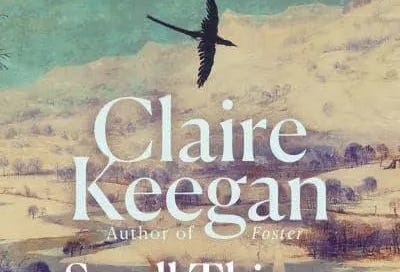In Claire Keegan's powerful novella Small Things Like These, a simple coal merchant's routine delivery becomes a profound moral awakening that challenges the collective silence of an Irish town. Set against the bitter winter of 1985, this exquisitely crafted story demonstrates how small acts of conscience can illuminate the darkest corners of society while asking crucial questions about individual responsibility in the face of institutional corruption.
Bill Furlong, a coal and timber merchant, emerges as an ordinary man whose quiet existence is disrupted by an extraordinary moral choice. His character is masterfully constructed through layers of personal history - the son of an unwed mother, raised by a Protestant widow whose kindness shaped his worldview. Keegan's portrayal of Furlong's relationship with Mrs. Wilson, his benefactor, serves as a backstory and moral compass, illuminating how past acts of compassion can echo through generations. His present-day interactions with his wife, Eileen, reveal the tension between pragmatic survival and moral imperative as they navigate the demands of raising five daughters in an economically precarious time.
The Christmas setting serves as both an ironic counterpoint and a moral framework. The contrast between festive lights and the dark realities of the Magdalene Laundries creates a powerful dissonance, while the nativity story's themes of seeking shelter and showing mercy resonate throughout the narrative. Keegan's use of winter imagery - the biting cold, the early darkness, the dampness that seeps into bones - reinforces themes of moral coldness and the potential for renewal.
The novel's compressed timeframe, unfolding over just a few days, creates a remarkable tension between the ordinary and the momentous. Keegan's prose is sparse yet precise, each carefully chosen detail building toward Furlong's crucial decision. The limited third-person perspective allows readers intimate access to his thoughts while maintaining a careful distance that emphasizes his isolation in moral choice. Perhaps most striking is Keegan's use of silence - what characters don't say, what the community chooses not to acknowledge, and the powerful implications of breaking that silence.
The social context of 1980s Ireland is deftly woven throughout, with subtle references to economic hardship, emigration, and the pervasive influence of the Catholic Church. The community's complicity in institutional abuse is revealed not through dramatic exposition but through casual conversations, sideways glances, and the general acceptance of the unacceptable. Keegan's portrayal of the Magdalene Laundries - institutions where "fallen women" were imprisoned and forced into labor - is all the more devastating for its restraint.
At 128 pages, Small Things Like These demonstrates the power of brevity. Like the small acts of kindness and courage it chronicles, the novel's impact far exceeds its modest size. Keegan distills complex moral questions into crystalline prose, creating a work that resonates far beyond its historical context. The questions it raises - about individual responsibility, institutional power, and the cost of remaining silent in the face of injustice - are painfully relevant today.
This story is about how moral courage often begins with simple recognition - seeing what others choose to ignore. Through Furlong's awakening, Keegan suggests that transformative change can begin with small acts of human decency. In an era when institutional abuse continues to make headlines, Small Things Like These reminds us that every moral choice, no matter how small, has the potential to challenge systems of oppression and illuminate paths toward justice.
The novel, shortlisted for the 2022 Booker Prize and won the Orwell Prize for Political Fiction, stands as historical testimony and urgent contemporary parable. In its quiet way, it asks each reader: What do we choose to see? What do we choose to ignore? And what small acts of courage might we be capable of in the face of systemic injustice?




And the film, I felt, did justice to the book, which doesn’t always happen.
I enjoyed this review. Seems like the perfect reading choice right now.